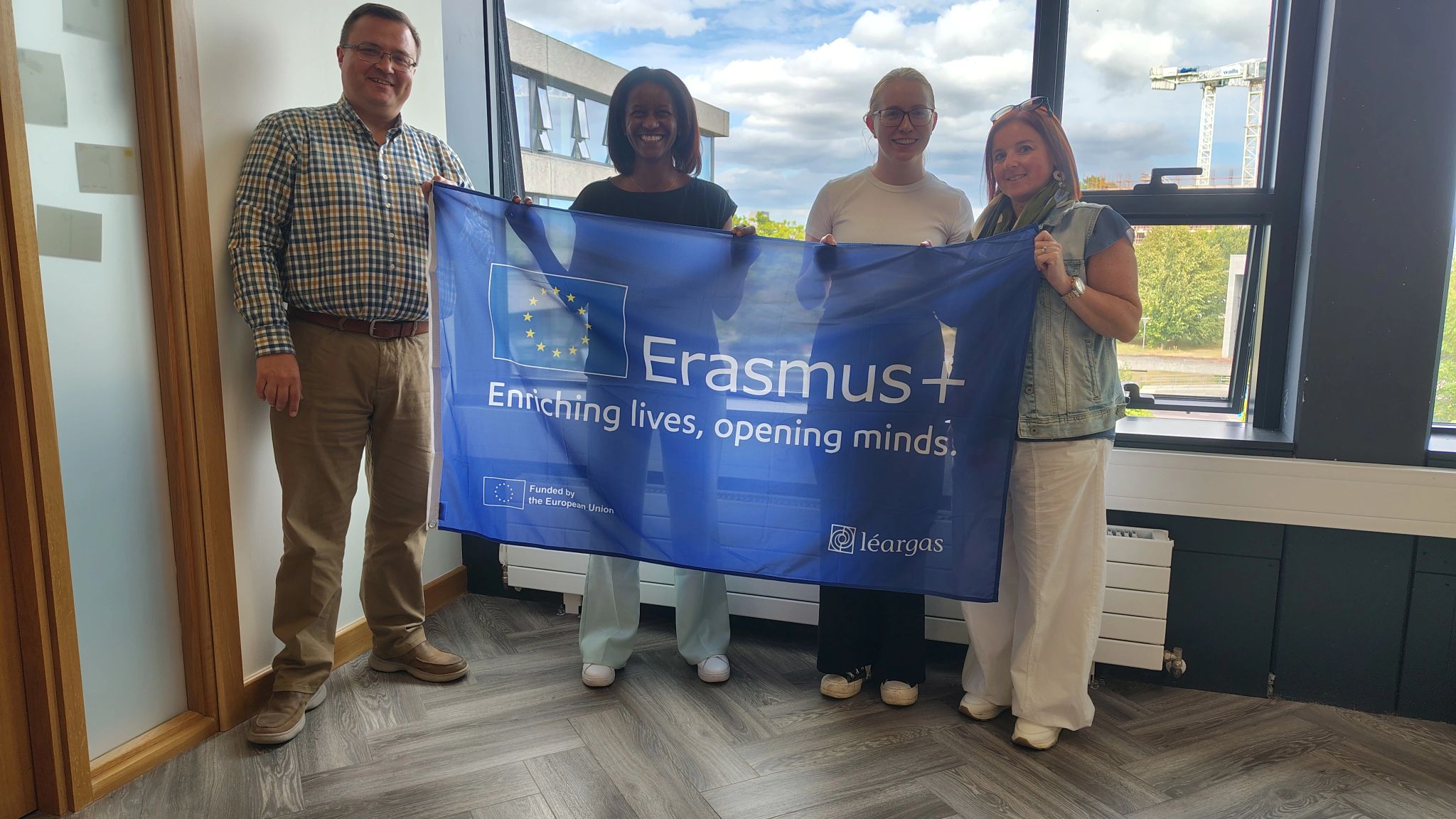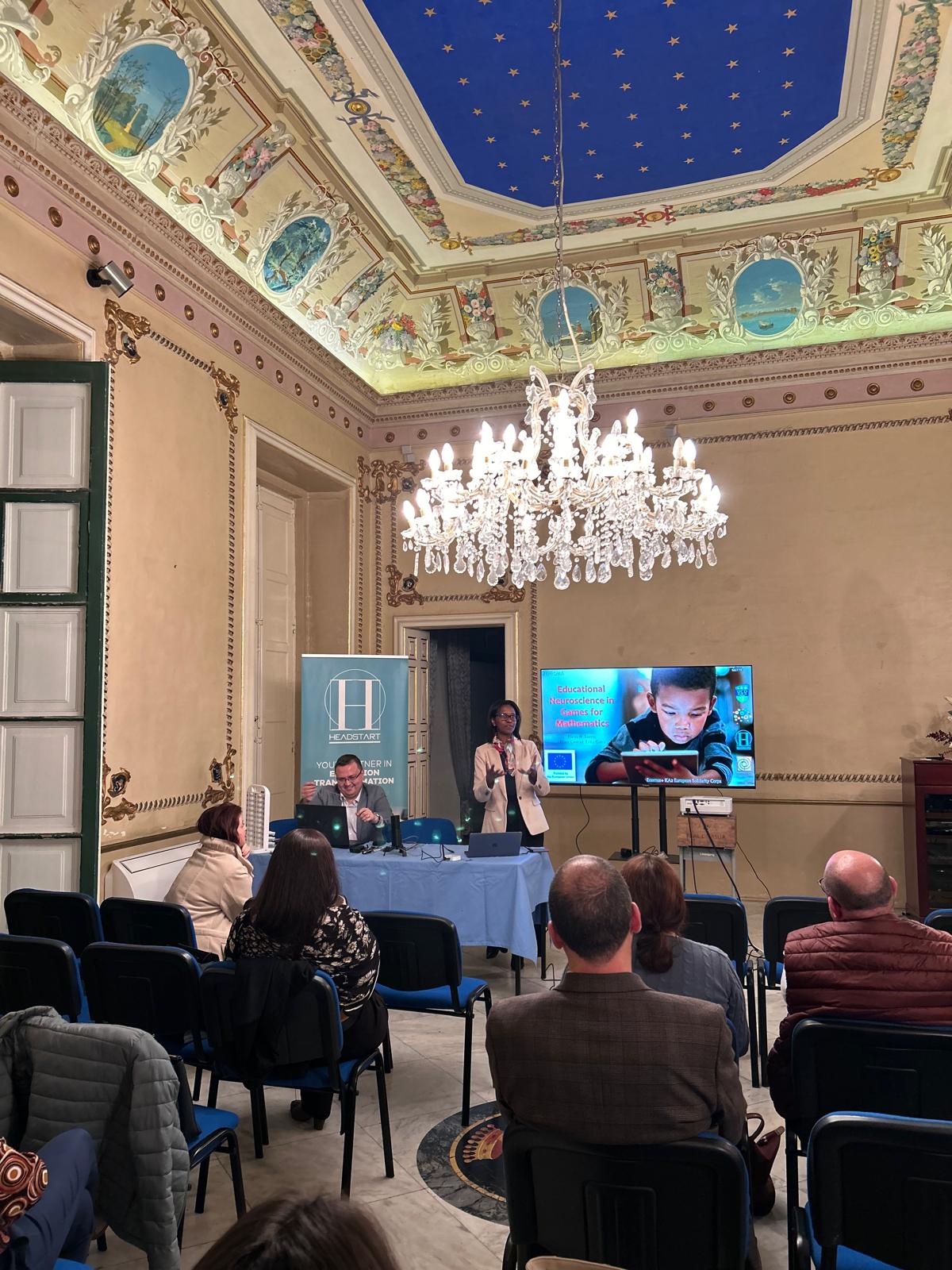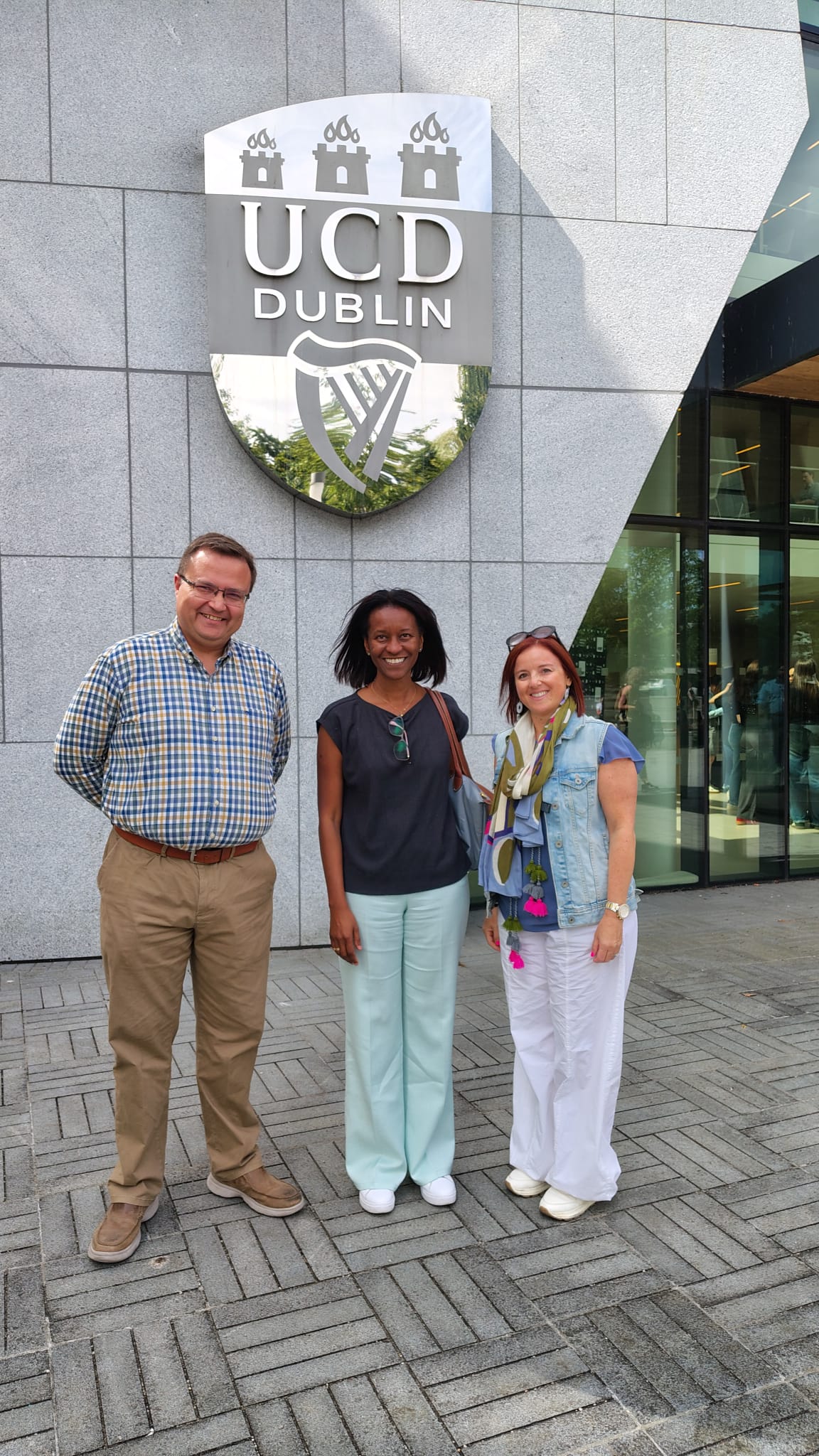Reshaping the future of mathematics education
Tuesday, 29 July, 2025
Share

(opens in a new window)Dr Flavia H. Santos, cognitive neuroscientist and Assistant Professor in the UCD School of Psychology has - along with partner organisation Headstart Technology - developed two innovative tools for educators designed to support the integration of games into mathematics education.
Following a highly competitive selection process in 2023, UCD and Headstart Technology were awarded €60,000 for an Erasmus+ Small Scale Partnership titled “ENIGMA”, Educational Neuroscience in Games for Mathematics.
The project sought to explore the effectiveness of the use of games in mathematics, and provide insights and tools to guide the creation of more effective games for mathematics education.
“While there is evidence showing that digital games in the classroom can enhance learning outcomes, most game developers and educators are unfamiliar with the neuroscience principles behind this connection,” said Flavia. “Consequently, teachers often depend on off-the-shelf resources without evaluating their advantages or understanding whether and how these resources specifically improve student learning. Games and quizzes are often viewed as quick and simple methods for assessing student knowledge, however, there is greater potential around games, and we wanted to empower teachers to make informed decisions on integrating games effectively. At the same time, the ENIGMA Project does not promote game-based learning uncritically. It emphasises a responsible and balanced use of technology, not as mere entertainment or a substitute for teachers, but as a complementary educational tool. ”

A key outcome from the project was the development of an online training course for teachers. The course - which was piloted during the project - is designed to provide educators with an understanding of educational neuroscience and its impact on mathematics education. The ENIGMA course also touches on potential risks such as digital addiction, offering guidance on how to prevent them. A rating tool for educators, called PRIME - Pedagogical Review of Interactive Math Engagement, was also developed led by Headstart Technology. The tool was designed to aid educators in making informed choices about the types of games and gamification elements that will work best for their students. It will also assist educators in understanding that different types of games may work better for some students than for others. The course and PRIME are available free of charge on the (opens in a new window)ENIGMA website.
The ENIGMA team - consisting of Flavia H. Santos (UCD), Nikolaus Conrad (Headstart Technology, Malta), Erika Galea (Educational Neuroscience Hub Europe) and Aoife Durkan (UCD alumna) - is passionate about transforming the way that school students engage with mathematics. In developing the resources, the project team engaged with game developers, researchers and maths teachers including carrying out in-depth interviews with high profile game designers, and launching an online survey to elicit feedback from teachers which attracted over 270 responses.

“At the heart of the project is our commitment to exploring the effectiveness of gamification approaches in mathematics education,” said Flavia. “Our goal was to provide insights that would guide teachers, game designers and educational institutions to create effective and engaging maths games for school students. We believe that by integrating gamification into educational practices, we can discover new possibilities for learning and make mathematics an adventure for students.”
Find out more
- Find out more about the project on the (opens in a new window)ENIGMA project website
- Funding for Flavia’s project was awarded by (opens in a new window)Léargas under Key Action 2 of the Erasmus+ programme. Erasmus+ Key Action 2 funding offers a range of different funding awards for projects that will lead to innovation in education and involve international collaboration.
- Find out more about Erasmus+ Key Action 2 funding awards in the Erasmus programme guide: (opens in a new window)https://erasmus-plus.ec.europa.eu/programme-guide/part-b/key-action-2
- If you have an idea for an educational development project and would like to discuss funding opportunities, email (opens in a new window)globalprojects@ucd.ie
- Photo captions: Main image: Flavia H. Santos with members of the ENIGMA project team Nikolaus Conrad, Erika Galea and Aoife Durkan. Photo 2: Flavia presenting during a transnational meeting in Malta. Photo 3: Flavia and colleagues from partner organisation Headstart Technology in UCD.